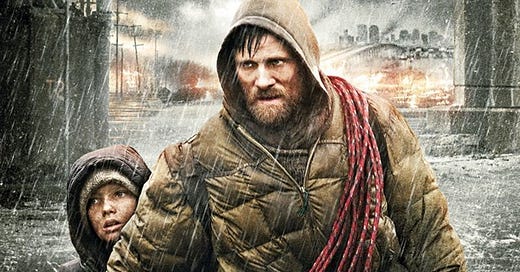Movies: The Road
This is the tale of a man, woman and child. It’s bleak and, at times, it’s hard to watch. But the dystopian 2009 movie based on a novel by Cormac McCarthy is a fine parable for everyday life, especially now. As I watched this nearly two-hour movie, I was thoroughly involved. I thought of the masked children of the Lockdown, how they’ve been traumatized into submission. The Road’s adept at making you think about the hidden, inner child and the incalculable cost of childhood lived in daily terror.
I cared about the main characters, a father and a son. The best part of The Road is its capacity to let you experience action moment by moment, without getting ahead of yourself and trying to guess what’s going to happen. It’s not an assault on the senses. It’s not a dramatization so ordinary it feels like you’re watching pure naturalism. There’s a progression, there’s a point, there’s a resolution. When you get it, it’s quite moving. That it comes with what feels like the end of the world make…
Keep reading with a 7-day free trial
Subscribe to Autonomia to keep reading this post and get 7 days of free access to the full post archives.




